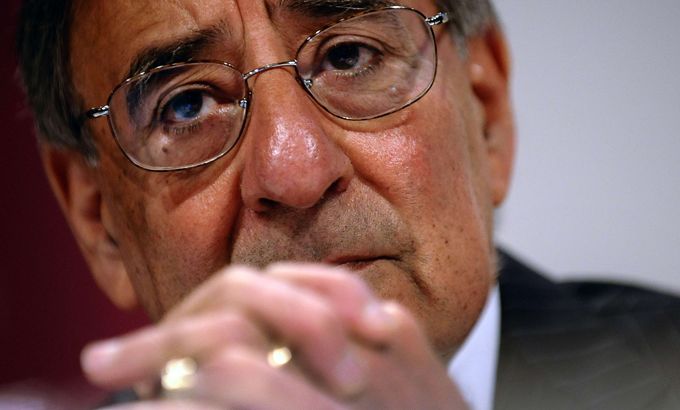Panetta says Pakistan testing US ‘patience’
US defence secretary wants Pakistan to do more to combat armed groups, especially the al-Qaeda-linked Haqqani network.

Leon Panetta, the US secretary of defence, has put renewed pressure on Pakistan to do more to combat armed groups in Pakistan, particularly the Haqqani Network, a group believed to be linked to al-Qaeda.
Panetta’s warnings came during a press conference in Kabul on Thursday with his Afghan counterpart, Abdul Rahim Wardak.
“We are reaching the limits of our patience here, and for that reason it is extremely important that Pakistan take action to prevent this kind of safe haven from taking place and allowing terrorists to use their country as a safety net in order to conduct their attacks on our forces,” Panetta said.
He was on a visit to the Afghan capital to discuss the details of a US-led troop reduction. Panetta also was scheduled to meet Ryan Crocker, the outgoing US ambassador in Kabul.
The Haqqani group has been blamed for several attacks on Americans in neighbouring Afghanistan, including last autumn’s attack against the US embassy and NATO headquarters in Kabul.
The group also has ties to the Taliban in Afghanistan.
“It is an increasing concern that the safe haven exists and that there are those likely Haqqanis who are making use of that to attack our forces,” Panetta said.
Political pressure
Lawmakers from both political parties in the US have urged the state department to designate the Haqqani network a foreign terrorist organisation.
Panetta’s Afghan counterpart also said Pakistan could do more to eliminate the sanctuaries that fighters are using in Pakistan.
“I do hope that gradually they will come to the conclusion to cooperate with us … If that co-operation starts, we will be able to disrupt their command and control, disrupt their training, disrupt their weapon recruitment and also will be able to eliminate or capture their leadership,” Wardak said.
Panetta arrived in Afghanistan on Thursday to assess progress in the war and discuss plans for the impending drawdown, even as violence spiked in the south. It was his fourth trip to the war zone as defence secretary.
He acknowledged the increase in attacks, and said that Taliban fighters appear to be much more organised. But he insisted that the overall level of violence was down, and that commanders had expected this summer’s increased fighting.
Panetta said he wants to get an assessment of the situation from the top US commander, Marine General John Allen, and see how confident he is about NATO’s ability to confront the threats both from the Taliban and the Haqqani
network.
“I think it’s important to make sure we are aware of the kind of attacks they’re going to engage in … as we go through the rest of the summer,” Panetta said during a stop in New Delhi, India, on Wednesday.
Violent day
Panetta arrived just a day after three suicide attackers blew themselves up in a marketplace in southern Afghanistan, killing 22 people and wounding at least 50 others.
In the east, officials and residents said a pre-dawn NATO missile strike targeting fighters killed civilians celebrating a wedding, including women and children.
A NATO spokesman said the coalition had no reports of civilians being killed in a raid.
Allen has to withdraw 23,000 American troops by the end of September, leaving about 68,000 US military personnel in the country. Officials have said the bulk of the 23,000 probably will not come out until shortly before the deadline.
As those troops leave, Allen has said that Afghan forces will be used to fill in the gaps in the eastern and southwestern parts of the country. They will be buttressed by US advisory teams that will work with the Afghan units.
Once the 23,000 US troops depart, Allen will begin to put together an analysis for President Barack Obama on how troop withdrawals will proceed next year.
Against this backdrop, Hillary Clinton, US secretary of state, implicitly defended US use of drone attacks against suspected fighters, just days after one of them killed Abu Yahya al-Libi, al-Qaeda’s second-ranking leader, in northwest Pakistan.
“We will always maintain our right to use force against groups such as al-Qaeda that have attacked us and still threaten us with imminent attack,” she said on Thursday in Istanbul at a meeting of the Global Counterterrorism Forum, a US- and Turkish-chaired group.